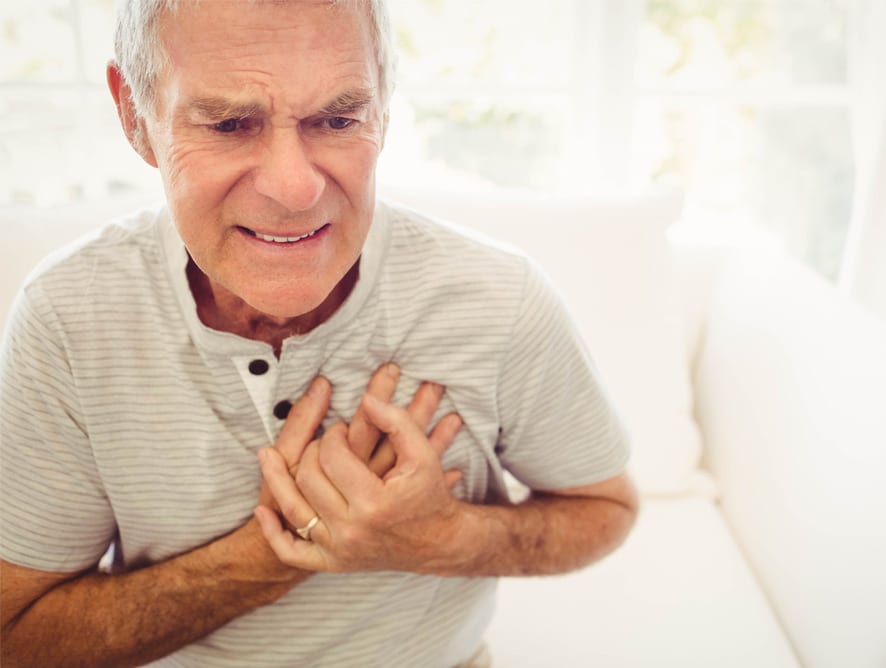Most of us have an image in our mind of what a heart attack looks like. This image is likely aided by what we’ve seen in movies and on television: somebody suddenly grabs the left shoulder/chest, cries out in pain, and falls to the floor. Unfortunately, Hollywood’s image of the heart attack isn’t entirely accurate. In fact up to one-third of heart attack patients – who were mostly older, female, or diabetic – experienced no chest pain at all (source). Fortunately, chest pain isn’t the only sign of a heart attack. Here are some other signs to for you to keep in mind.
Pain/Pressure in the Chest and Upper Body
I know, I said I was going to talk about other symptoms and signs of a heart attack. However, chest pain/pressure, along with pain throughout your upper body, are still the most common signs of a heart attack. It’s important to note that this pain isn’t always sudden, and can feel present differently in different people. Most frequently, this pain lasts for longer than a few minutes, or comes and goes.
Shortness of Breath
For some patients, shortness of breath may be one of the only signs of a heart attack. The shortness of breath may accompany light activity, or it may occur when the patient is resting.
Feeling Unusually Tired
Women are more likely than men to experience unusual fatigue as a symptom of a heart attack. The feelings of extreme fatigue, without any obvious cause, can last for days.
Nausea/vomiting
Although nausea and vomiting can have many causes, it’s important to be aware they can indicate a heart attack.
Sudden Dizziness
If you suddenly feel dizzy, or lightheaded, without any clear reason, then the symptoms could be a sign of a heart attack.
If you are experiencing any of the symptoms on this list, or you think you may be having a heart attack, CALL 911.
Please don’t be embarrassed, or take a “wait and see” approach. This is not the time to wait for somebody to drive you to the emergency room. Call 911, and allow Emergency Medical Services (EMS) personnel to do their jobs. They will be able to assess your health, start lifesaving measures, and get you admitted to the hospital as quickly as possible. The earlier you receive treatment, the better the chance your doctors have at limiting damage to your heart, and saving your life. So familiarize yourself with this list, be aware of your own health, and seek medical attention as soon as you feel that something isn’t right. Your heart will thank you


